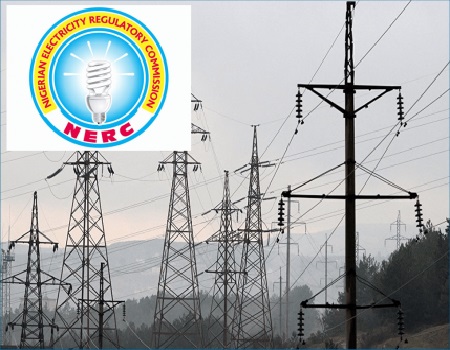About two weeks after the Nigerian Electricity Regulatory Commission (NERC) approved an increase of 300 percent in electricity tariff for Band A consumers, Nigerians are still complaining that it has not translated to improved power supply.
The NERC, through its Vice Chairman, Musiliu Oseni, at a press briefing in Abuja, announced the hike.
He said those affected would pay a tariff of N225 per kilowatt-hour, up from N68/kwh, which is about 240 percent increase.
According to NERC, the service bands were categorised into A, B, C and D. While those in Band A and B are expected to get between 20 and 24 hours, and 16 and 20 hours of electricity supply, respectively, customers in Band C and D will enjoy between 12 and 16, and eight and 12 hours, in that order.
However, despite the promise of improved power supply by NERC, customers have continued to express worry over inadequate and stable power supply, calling on the regulatory body and the distribution companies (DisCos) to up their game and satisfy the yearnings of Nigerians on power supply is.
While Nigeria, with over 200 million people still oscillates between 3,500 MWs and 4,500 MWs of electricity with attendant negative effects on the economy, countries such as Egypt, Algeria and Morocco with less population, generate more power. The trio (Egypt, Algeria and Morocco) with 112 million, 45 million and 38 million people, respectively (2023 population) have 100 percent electricity access. Egypt generates 59,063MW, Algeria 33,000MW and Morocco 10,630MW.
Despite the billion-dollar investment in the power sector by successive governments, Nigeria has not enjoyed stable electricity supply, which is largely responsible for the frequent collapse of the national grid.
In the meantime, the Association of Nigerian Electricity Distributors (ANED) has decried the unstable power supply across the country.
ANED said Nigeria needs to generate about 33,000 megawatts to have stable electricity.
Unhappy customers/consumers
Some Nigerians who spoke to Nigerian Tribune, expressed their displeasure at the service being provided by the Abuja Electric Distribution Company (AEDC), which they said is not encouraging.
They condemned, in its entirety, the monopoly being enjoyed by the DisCos, saying most times they bring whatever bills that suits them whether they supply power or not. The customers lamented that people are being shortchanged because they are only paying for darkness.
“I want to appeal to the government to allow for more participation in the power sector as we witnessed in the communication sector some years back. We still remember what we went through (in the communications sector) before more participation was allowed through the liberalisation of the sector. Today, Nigerians can choose whichever network they so desire if the other is not giving them the service they desire. I believe the same should be applied in the power sector.
“Foisting power distribution companies on Nigeria according to zones is not the best. This is 21st century and we should subscribe to international global practice. In just nine months or thereabout, this government removed fuel subsidy, floated the naira and now this electricity tariff increment. Enough is enough,” an Abuja resident, who did not want his name in print, told Nigerian Tribune.
Another resident, who simply gave her name as Stella said: “People are not enjoying regular power supply, yet you are asking them to pay more for what they are not seeing! If I may ask, are they paying for darkness? This is like putting the cart before the horse. Do the right thing first by providing constant and stable power supply; open the market for more investors, then you can introduce whatever you want to and I am sure Nigerians will be willing to pay for service they are enjoying. Anything short of this is cheating.”
We will redirect electricity subsidy savings to improve power supply – FG
Meanwhile, the Minister of Information and National Orientation, Mohammed Idris, has promised that the over N1 trillion that would be saved from the withdrawal of electricity subsidy would be reinvested in improving power supply and the provision of social services in the country.
The minister stated this in Kaduna, at the weekend, as a guest on the popular Hausa audience participatory programme of Radio Nigeria, Kaduna, Hannu Da Yawa.
According to him, the disproportionate amount of electricity subsidy, approximately 40 percent, is benefiting only about 15 percent of the electricity consumer population, comprising affluent individuals and industrial clusters who enjoy about 20 hours of electricity.
“It is essential to emphasise that the funds to be saved from the withdrawal of electricity subsidy will be reinvested in enhancing power supply across the country and improving other vital social services such as health and education,” Idris stated.
The minister, however, emphasised that 85 percent of the population who fall under the different categorisations of the new electricity supply regime still enjoy the subsidy.
He added that the new Electricity Act, signed by President Bola Tinubu, has strengthened the governance structure of the NERC and empowered the commission to place severe sanctions on electricity distribution companies for infractions relating to billings and supply of electricity to consumers.
ALSO READ: Yoruba Nation: Gov Adeleke beefs up security in Osun
